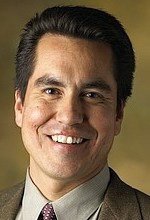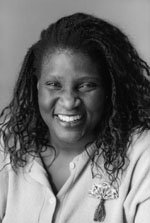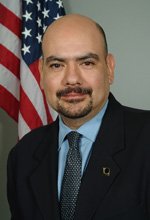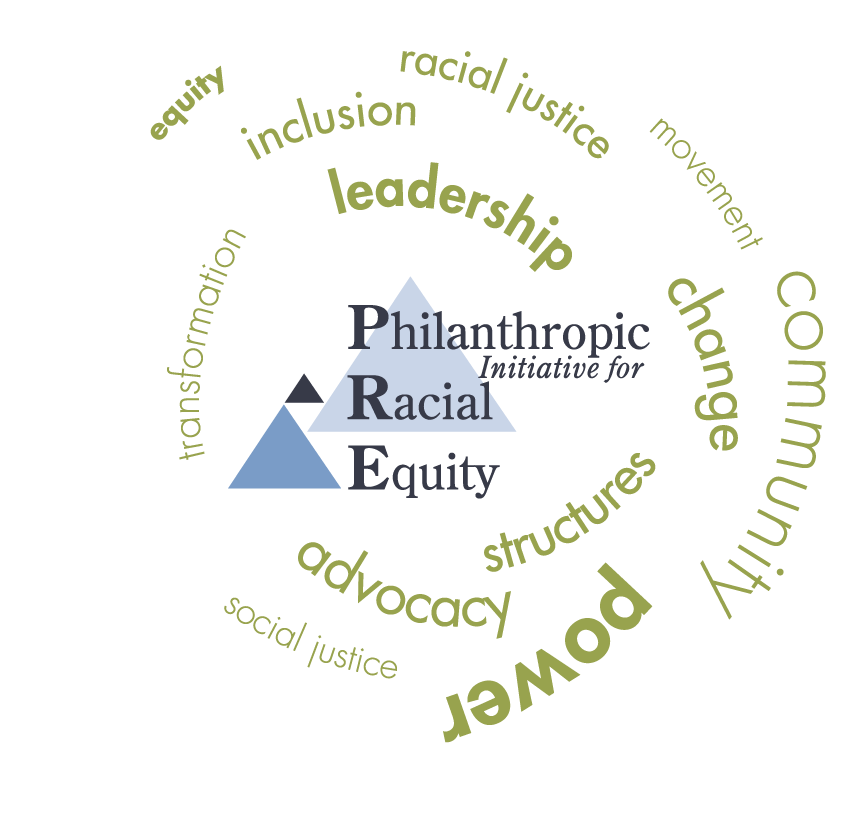Critical Issues Forum Vol. 1: Measuring What We Value
Critical Issues Forum Vol. 1: Measuring What We Value
 Gara LaMarche, a long-time human and civil rights advocate, is president and CEO of The Atlantic Philanthropies. Before joining Atlantic, LaMarche served as vice president and director of U.S. Programs for the Open Society Institute.
Gara LaMarche, a long-time human and civil rights advocate, is president and CEO of The Atlantic Philanthropies. Before joining Atlantic, LaMarche served as vice president and director of U.S. Programs for the Open Society Institute.
The debate inside and outside California about AB 624, the state bill that would mandate the collection and posting by foundations of data about their grantmaking to communities of color, presents a clash between well intentioned but misdirected intervention by government and defensive reactions from the philanthropic sector. The net result, whatever happens to the legislation – which seems unlikely to pass in its current form, anyway – is that mistrust between the two sectors could widen. There is danger that the debate will distract attention from the most profound issues of race and power that the bill is trying to address.
 Lori Villarosa is the executive director of Philanthropic Initiative for Racial Equity. Prior to launching this initiative in 2003, she spent 11 years at the Mott Foundation, where shedeveloped its U.S. Race Relations portfolio. She serves on the board of the Winthrop Rockefeller and Paul J. Aicher Foundations.
Lori Villarosa is the executive director of Philanthropic Initiative for Racial Equity. Prior to launching this initiative in 2003, she spent 11 years at the Mott Foundation, where shedeveloped its U.S. Race Relations portfolio. She serves on the board of the Winthrop Rockefeller and Paul J. Aicher Foundations.
Like many of our colleagues who have long advocated for philanthropy to increase giving around a range of racial and social justice issues, we at the Philanthropic Initiative for Racial Equity (PRE) have been unclear as to whether a legislative battle over data collection is a fight we really want. Nonetheless, the debate is here and centered around California Assembly Bill 624 (AB 624), which calls for large California foundations to report on racial/ethnic composition of their staffing, governance and grantmaking. But regardless of the direct impact of legislation, there is now both an opportunity, and increasingly, a need, to surface critical issues about what is and isn’t valued by philanthropy – and how that is defined, determined and measured.
 Rick Cohen is the national correspondent of Nonprofit Quarterly magazine. Prior to joining NPQ, he was the executive director of the National Committee for Responsive Philanthropy, a national nonprofit philanthropic watchdog organization. He is a former member of the PRE advisory board.
Rick Cohen is the national correspondent of Nonprofit Quarterly magazine. Prior to joining NPQ, he was the executive director of the National Committee for Responsive Philanthropy, a national nonprofit philanthropic watchdog organization. He is a former member of the PRE advisory board.
If one California state legislator has his way, his state may soon compel some foundations to let the public know the extent to which their work touches people of color, gender minorities and low-income communities.
State Assemblyman Joe Coto has proposed a bill, known by its legislative number AB624, which has energized foundations to come out swinging against the notion of compulsory reporting by foundations on the diversity of their own makeup and of their grantmaking. The lessons learned from this still unfolding legislative battle might be useful in a future dialogue on the question of promoting more racial/ethnic equity in organized philanthropy.
The legislation challenges foundations to their core. Whom do foundations serve? How will philanthropy address racial and social inequities? Whether or not it passes into law, AB624, warts and all, raises important issues that foundations have often addressed through largely unproductive expressions of caring commitment to diversity
 David Cournoyer is co-chair of the board of directors of Native Americans in Philanthropy, a Council on Foundations affinity group that seeks to build bridges between foundations and Native communities. He has worked at two national private foundations as well as the American Indian College Fund, and he previously worked for a decade as a television journalist. Cournoyer is an enrolled member of the Rosebud Sioux Tribe of South Dakota.
David Cournoyer is co-chair of the board of directors of Native Americans in Philanthropy, a Council on Foundations affinity group that seeks to build bridges between foundations and Native communities. He has worked at two national private foundations as well as the American Indian College Fund, and he previously worked for a decade as a television journalist. Cournoyer is an enrolled member of the Rosebud Sioux Tribe of South Dakota.
It’s no secret that the United States is growing more racially and ethnically diverse. Don’t you remember the breathtaking pictures of literally tens of thousands of people taking to the streets about immigration reform? Did you miss the news about the growing number of states with “majority-minority” populations?
More recently, the headlines have focused on Senator Barack Obama’s courageous appeal to Americans to recognize both the progress we have made and the significant racial disparities that still exist. It was an historic call to acknowledge that we are not yet “a more perfect union” fully capitalizing on America’s rich diversity, which brings a broad array of knowledge, cultural values and perspectives.
What is philanthropy doing about this? Where’s the Obama-like, bold leadership? If the nimble nonprofit sector can’t provide aggressive support and commitment to help the U.S. capitalize on its diversity and fully promote the voice of underserved communities, where will it come from? Unfortunately, many of us in the sector who represent communities of color are not setting our expectations very high.
 Eva Paterson is the president and a founder of the Equal Justice Society, a national organization dedicated to changing the law through progressive legal theory, public policy and practice. Previously, she worked at the Lawyers’ Committee for Civil Rights for 26 years. As a cofounder and chair of the California Coalition for Civil Rights, Paterson was a leading spokesperson in statewide rights campaigns. She is a member of the PRE advisory board.
Eva Paterson is the president and a founder of the Equal Justice Society, a national organization dedicated to changing the law through progressive legal theory, public policy and practice. Previously, she worked at the Lawyers’ Committee for Civil Rights for 26 years. As a cofounder and chair of the California Coalition for Civil Rights, Paterson was a leading spokesperson in statewide rights campaigns. She is a member of the PRE advisory board.
We are currently involved in a controversy about whether or not foundations should be required to collect data on the race or ethnicity of its grantees. This topic brings to mind Black Power advocate Eldridge Cleaver’s famous admonition that you are either part of the problem or part of the solution. Philanthropy has played both roles.
When one looks at this more closely, the controversy is yet another manifestation of the dis-ease we have with dealing forthrightly with race. It would be safer to duck this issue and to lie low until it blows over, but we at the Equal Justice Society (EJS) after much anguished discussion decided we must speak.
Foundations have provided critical support in the advancement of racial justice. In 1922, Charles Garland, a 21-year old Harvard undergrad, established the Garland Fund. One of Garland’s goals was to improve the schools that Black children attended. I recently read a moving essay by Alice Walker who describes walking past White schools on her way to under-funded and dilapidated Black schools in Georgia. The brilliance of Black teachers in these segregated schools is legendary in spite of being hobbled by outdated books and few resources. Charles Hamilton Houston, Thurgood Marshall, Jack Greenberg, Constance Baker Motley and other attorneys looked for a strategy that would result in a better education for Black kids. The Garland Fund supported the development of the three-decade strategy that culminated in Brown v Board of Education. James Weldon Johnson, Roger Baldwin and Norman Thomas administered the board.
 Rinku Sen is the president and executive director of the Applied Research Center and publisher of ColorLines. Her latest book, The Accidental American: Immigration and Citizenship in the Age of Globalization (Berrett-Koehler) was released in September, 2008. She is a member of the PRE advisory board.
Rinku Sen is the president and executive director of the Applied Research Center and publisher of ColorLines. Her latest book, The Accidental American: Immigration and Citizenship in the Age of Globalization (Berrett-Koehler) was released in September, 2008. She is a member of the PRE advisory board.
The Applied Research Center (ARC) has studied philanthropy in relation to communities of color through our report, Short-Changed: Foundation Giving and Communities of Color, and through a racial equity assessment tool that we have tested with two foundations. In each case, our findings revealed that although the total philanthropic dollars going to communities of color is dismal in itself, we have to go beyond counting diversity data to ensure that such philanthropy is generating racial justice.
It is difficult to count the distribution of philanthropic dollars by race – not all foundations keep such data, and there is no public mandate requiring it. Even with having to qualify some of the data, however, Short-Changed found that although people of color make up nearly one-third of the general U.S. population, grants explicitly targeted to benefit them constituted only 7 percent of foundation giving in 2001. Grants to African American organizations in 2000 and 2001 constituted only 1.4 percent of total foundation grants, dropping from a high of 3.8 percent in 1999. The average size of grants to organizations that supported African Americans shrank by nearly 20 percent in that time. Grants to other communities of color showed similar patterns.
 Makani Themba is the former executive director of The Praxis Project, a Washington, DC-based nonprofit organization supporting community-based policy and media advocacy nationwide. She is a member of the PRE advisory board.
Makani Themba is the former executive director of The Praxis Project, a Washington, DC-based nonprofit organization supporting community-based policy and media advocacy nationwide. She is a member of the PRE advisory board.
Every organized interest has a love-hate relationship with government regulation. We want clear public monitoring and benchmarks for the other guy. For ourselves, well, we urge more measured approaches like support for self-governance, expansion of voluntary guidelines and the perennial favorite – autonomy – because after all, us good people with good intentions don’t need sticks. We are carrot folk who can be good for, er, goodness sake.
The unfortunate truth is that those interests with the most power tend to live more of a carrot life in the world of government intervention and regulation. And those with much less power live firmly under the stick. In fact, it was partially these policy inequities that catalyzed a study and then legislation that sought to connect the dots between the lack of diversity in philanthropy and the limited capacity of traditional marginalized communities (communities of color, sexual minorities and women) to affect change in their interests.
 Arturo Vargas is the executive director of the NALEO Educational Fund, the leading nonprofit organization that facilitates full Latino participation in the American political process, from citizenship to public service. He is also the board chair of ZeroDivide (formerly the Community Technology Foundation) and chairs the Council on Foundations’ Committee on Inclusiveness. He is a member of the PRE advisory board.
Arturo Vargas is the executive director of the NALEO Educational Fund, the leading nonprofit organization that facilitates full Latino participation in the American political process, from citizenship to public service. He is also the board chair of ZeroDivide (formerly the Community Technology Foundation) and chairs the Council on Foundations’ Committee on Inclusiveness. He is a member of the PRE advisory board.
Funders have widely agreed that the philanthropy field and its grantmaking are not sufficiently diverse and that more resources can and should be directed to diverse communities, including communities of color. In fact, many foundation leaders point to voluntary actions as the correct alternative to legislative mandates for diversity-related data collection.
We should support the laudable actions and initiatives organized philanthropy is taking to increase its diversity. However, one of the key challenges for such voluntary efforts is how to measure progress. Absent data collection, it will be impossible to demonstrate that the field has become more diverse over time; that grantmaking is reaching more diverse communities than before, and, most important, that such increase in diversity actually is contributing to greater effectiveness.
 Karen Zelermyer is the executive director of Funders for Lesbian and Gay Issues. She has also served as the deputy director of the Astraea Lesbian Foundation for Justice.
Karen Zelermyer is the executive director of Funders for Lesbian and Gay Issues. She has also served as the deputy director of the Astraea Lesbian Foundation for Justice.
Every year, Funders for Lesbian and Gay Issues (FLGI) tracks how many U.S. foundations offer grants to lesbians, gay men, bisexuals, transgender and queer (LGBTQ) issues, measuring total foundations, total giving and total grants to LGBTQ organizations and projects. We gather this data by asking foundations to report who they are funding, the kind of support they are providing and for what issues and populations. We have learned that hundreds of foundations – large and small, public, community, corporate and private – collect data on their grantees as a part of their ongoing work. And while inconsistent taxonomies present numerous problems, the task does not appear to be so onerous as to prevent foundations from doing it.
FLGI is one of several identity-based affinity groups established over the past three decades to address an inequitable distribution of resources that undermines the very heart and soul of what it means to be a democratic society. These groups also challenge the underwhelming representation of people of color, LGBTQ people, people with disabilities and women in leadership positions within foundations and nonprofit organizations.

